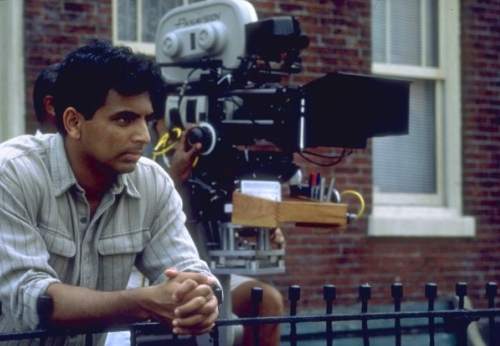It’s hard to imagine how Alfred Hitchcock would have dealt with the Internet.
Long before we were in cyberspace, the director of North By Northwest and Psycho was a master at keeping story secrets, but on one film all he had to do was ask the cast to raise their hand, and promise not to reveal anything about the movie.

Good luck with that today, where people have to sign legally binding documents promising not to talk about the plot, scripts are locked up with computer codes, and in the case of Spielberg’s AI, you weren’t allowed to take a copy of the script home, you had to read it in the director’s office if you were up for a role.
But I’ve often found if there’s a secret worth keeping in a movie or a book, Harry Potter being the best recent example, that the audience will keep mum and not spoil it for anyone.
Psycho built its whole ad campaign telling the audience not to give away the ending, “It’s the only one we have,” and as Stephen Rebello reported in Alfred Hitchcock and the Making of Psycho, as theatergoers were leaving, those waiting on line wanted to know what was awaiting them, and no one would tell.
Hitchcock also had the gimmick of not letting anyone into the movie once it started because Janet Leigh got killed off early, and he didn’t want anyone coming in late still expecting to see her in the film.
In the case of Harry Potter, even if some putz revealed how the last book ended, the fans wouldn’t want to know in a million years, and would go out of their way to avoid spoilers.
In an interview with the cable show Night Flight, Gene Simmons once said that when the magazines had polls asking if the fans wanted to see Kiss without their make-up, the fans usually voted no because they didn’t want the mystery being spoiled.
The Crying Game also built a clever ad campaign around not telling the secret, where with The Sixth Sense, there wasn’t an all points bulletin warning not to give anything away, which was pretty risky, but because the movie played fair with its twist, not just slapping on something shocking for the sake of it, there was a lot of audience goodwill in not spoiling it for anyone.
“Word gets around, but audiences have been very good about keeping secrets,” says Larry Cohen, screenwriter of Phone Booth and It’s Alive.
“They did that that in quite a number of pictures. The audience was very good about keeping the secret for The Sixth Sense. They could have ruined the movie if they told their friends, but people didn’t tell. Same thing with The Crying Game.”






